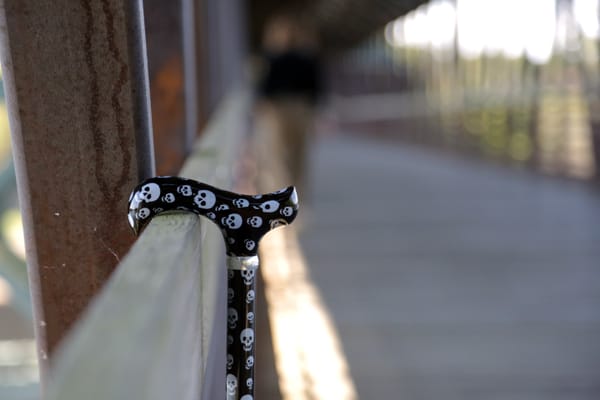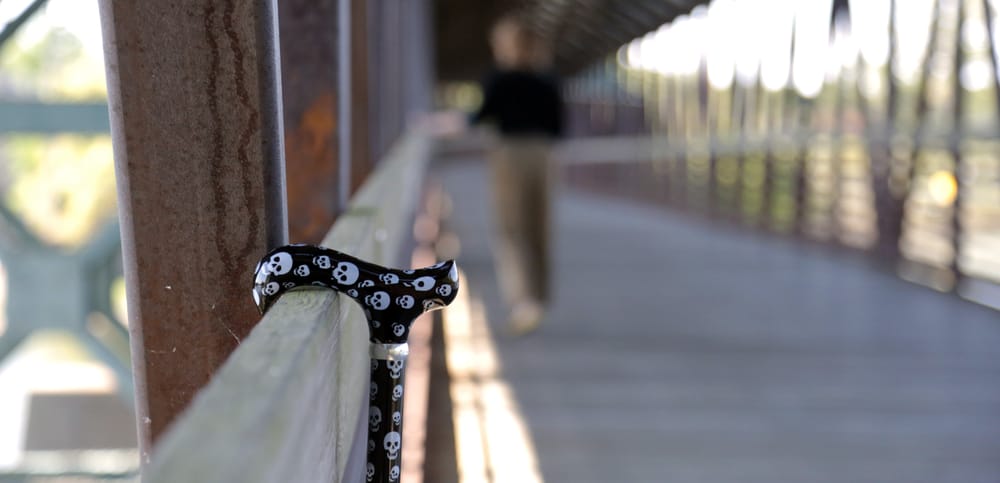I've never been so scared as I was when I became a salaried worker.
I'd spent over ten years (my entire professional life) freelancing, first off and on, then full-time. I'd never had PTO, employer-provided insurance, or a boss outside of my clients and the occasional part-time gig. Instead, I had complete freedom over my schedule, where and when I worked.
And that was incredibly important to me because I'm disabled.
It's hard out there for people who need to work differently. Self-employment, though it made healthcare more complicated and is stressful in its own right, gave me the space to manage my health. And I'm forever grateful for that.
Since I started my new job three months ago, I've been able to let go of a lot of fear. I have a supportive team, great managers, and have adjusted to a new schedule. But looking back on all those concerns, conversations with people, and work accommodation discussions, I've come to two very interesting realizations.
One, disabled needs are human needs.
A few months ago, disability advocate Becca Lorry Hector used this phrase in a LinkedIn post comment and it really stayed with me.
I have chronic depression. That means I regularly deal with things like brain fog, fatigue, difficulty concentrating or focusing, and mood swings.
All the things I needed to work well, like taking regular breaks and the ability to move a bit slower if I'm having a bad day, are basic human needs. Humans need breaks. Humans need rest. So why did I feel so guilty putting those needs down on paper and asking for them formally at work?
I had so many preconceptions about full-time work and heard so many horror stories from other freelancers, that I was determined not to rock the boat. I didn't want to make a fuss, just make my needs known to my manager and keep my head down.
Sometimes, I didn't speak up for myself. At one point, I endangered my own health by waiting for permission to take a break instead of just notifying my manager that I was stepping away. Other times, I overshared, giving more detail than I really needed to in an effort to relate to others and help them understand that I wasn't trying to "slack off".
But as I slowly adjusted, I realized that the accommodations I was asking for made complete sense and could easily be applied to anyone, disability or not. This led me to my second realization:
We accept an unhealthy way of working because it's the norm.
People with disabilities have and continue to face discrimination in the workplace. But I now see that one of the biggest reasons we struggle is many companies still don't treat workers as humans, let alone ones with individual needs.
Since I began working full-time, I've learned a lot more about my partner's previous work experiences. We would debate common issues like accommodations and requesting lunch breaks, and he'd tell stories about horrible bosses and managers that didn't give a shit. When I protested or asked why he didn't stand up for himself, he'd shrug and say "That's just how it worked".
And it got me thinking. Why is individual support not the norm?
It's odd to have lived outside of the "9-to-5 worker" system your society is built on, realize just how unhealthy it is, and then join it yourself. I've been lucky with my (remote) job and team, but that doesn't change the fact that the working world still isn't built to accommodate individual needs.
I know things are changing. We have remote and hybrid work, more flexibility, and there is a growing movement focused on taking a "people-first" approach to hiring and building companies. We are getting somewhere, we just still have a ways to go.
But I want to leave you with a thought:
People with disabilities, whether physical, intellectual, mental, or otherwise, have human needs. The need to rest, the need to work without discomfort or pain, the need to access a building —these are needs we can all relate to.
And when you create a system that includes and accommodates disabled people, you also include and accommodate everyone else.
More about Leanna
- Recently written: 4 ways to manage your energy at work (Zapier)
- To get notified when new posts come out, feel free to subscribe here. You can also sign up on my website!
- Learn more about me and my work
- Listen to the Bettermental Podcast






